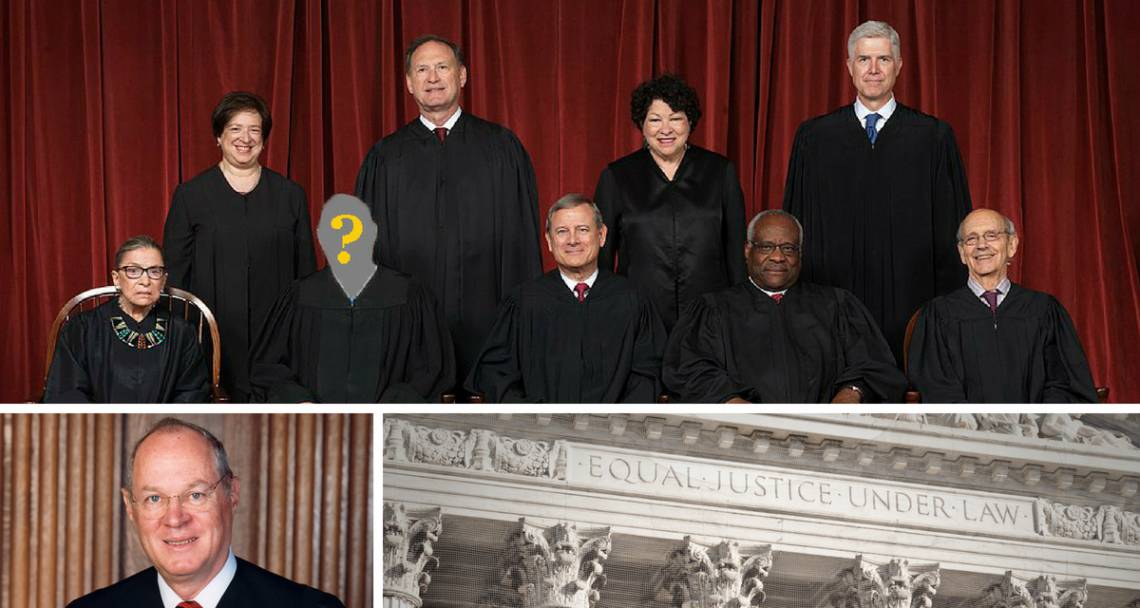Legal Experts Worry About Future Supreme Court
Justice Kennedy's replacement could steer high court heavily conservative, they say

Supreme Court Justice Anthony Kennedy’s retirement announcement Wednesday opens the door for the nation’s high court to become “the most conservative court in modern American history,” says one Duke legal scholar.
"Every American -- and every senator -- who cares about how the U.S. Constitution and federal laws are interpreted by our nation's highest court should have their eyes wide open,” said Neil Siegel, a constitutional law expert at the School of Law.
“With Chief Justice John Roberts poised to replace Justice Anthony Kennedy as the median, decisive justice in closely divided cases, the Supreme Court is poised to become -- for a decade or more in all likelihood -- the most conservative court in modern American history, with a conservative majority that is significantly to the ideological right of the constitutional convictions of a majority of Americans.”
Fellow Duke law professor Jedediah Purdy also shared concerns about the future makeup of the Supreme Court, now that President Trump will name a second conservative to the bench.
“What is at stake is whether American democracy can overcome the new gilded age of inequality and insecurity,” Purdy wrote in a New York Times op-ed. “The justices, meanwhile, are part of the problem: In Janus and other rulings, they have retrenched on the side of private power and budgetary austerity. A different law of economic power will have to wait for a different court, and that will come only through winning elections.
“Those victories get more uphill every year, thanks in no small part to the current court.”
Kennedy, 81, who will retire July 31, has cast many pivotal votes since President Reagan appointed him to the Supreme Court in 1988. He voted with conservatives on issues including gun rights, election campaign finance and cast the deciding vote in the disputed 2000 presidential election that allowed George W. Bush to defeat Vice President Al Gore.
Kennedy also sided with liberals on gay rights and abortion decisions.
“His votes have been pivotal, so his retiring is giving Donald Trump the opportunity select a replacement is likely to be crucial for hot-button issues that come up in the U.S.,” law professor Darrell Miller told The Guardian.
But Miller added that there’s a chance the new court won’t rubber stamp Trump’s agenda.
“Assuming that Trump nominates a fairly ideological pick, there will be a lot of pressure on the chief justice to appeal to his (or her) sense of stability and not have the Supreme Court be just another political arena: an institutional commitment instead of rough and ready politics.”
Fellow Duke law professor Ernest Young thinks Chief Justice John Roberts would reign in decisions that might harm the court's legitimacy.
"Even though on paper they might have the votes to, say, overrule Roe v. Wade, I just don't see him doing that," the constitutional law professor told Law360.
Siegel, however, maintains that the revamped Supreme Court could prove detrimental to some.
“The stakes are very high indeed for all Americans, but they are especially high for women, people of color, sexual orientation minorities, adherents of minority religious faiths and criminal defendants,” Siegel said. “With so much hanging in the balance, senators should come prepared to ask hard questions of the nominee about what he or she actually believes, and they should expect responsive answers."